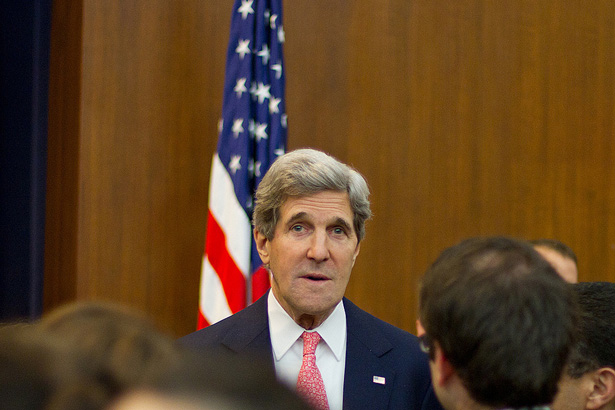-
What Could Sequestration Mean for U.S. Development and Diplomacy?
February 28, 2013 By Schuyler Null
Newly minted Secretary of State John Kerry would probably prefer his first few months on the job to be a little quieter. But – in addition to everything else – sequestration is bearing down on Washington this week, and the U.S. government is beginning to seriously take stock of what automated cuts might mean. The Department of State and the U.S. Agency for International Development (USAID) are not spared. Kerry sent a letter earlier this month to Senate Appropriations Committee Chairwoman Barbara Mikulski (D-MD) outlining the projected effects for his charges if the March 1st deadline should pass without action.
Sequestration would force the two agencies to find $2.6 billion in across-the-board reductions and “seriously impair our ability to execute our vital missions of national security, diplomacy, and development,” said Kerry.
$200 million would be cut from humanitarian assistance accounts, which provide emergency relief to places like the Sahel, where long-term resilience has been eroded by chronic drought and where, at one point last year, more than one million children were at risk for severe acute malnutrition. $400 million would be cut from global health funding in general, undermining, said Kerry, “our efforts to shape the broader international efforts to fight disease and hunger…and foster more stable societies and regions.”
Population Action International speculates that the U.S. contribution to the United Nations Population Fund would be a likely target for any global health cuts. Using methodology from the Guttmacher Institute, they estimate that a reduction in $32.3 million to family planning and reproductive health programs could result in:
- 1.68 million women denied access to contraceptive services and supplies
- 485,000 additional unintended pregnancies
- 226,000 additional unplanned births
- 1,292 maternal deaths
- 6,460 children losing their mothers
On the national security front, $500 million would be cut from security assistance and foreign military financing accounts. At the same time, as Josh Rogin points out on Foreign Policy, the State Department is still awaiting Congressional approval to shift existing funds towards ramping up security for diplomats in response to the 2012 Benghazi attack that killed four Americans.
In his introductory speech to USAID earlier this month, Kerry echoed his predecessor in drawing a direct line between development and security, from the environment (“developing water capacity for people in some parts of the world keeps people from killing each other”) to demography and health:
You look at the Maghreb today, you take a country like Egypt or Jordan or many of the countries in the Middle East, you’ve got 60 percent of the population under the age of 30, 50 percent under the age of 21…40 percent under the age of 18. If we don’t build health capacity or education capacity or governance capacity with those folks, then everybody here knows how ripe those people will be for someone to walk in with a religious extremist point of view and strap a suicide vest on them and send them out to do harm because they don’t have anything better to offer to the world.
In 2011, former Secretary Hillary Clinton launched an ambitious attempt to review and re-align the Department of State’s various components, including USAID, with the first Quadrennial Diplomacy and Development Review. But that effort may now be in doubt. Kerry said that sequestration would cut $70 million from the USAID operating budget and reverse “progress made to better equip the agency to achieve the Administration’s objectives in an accountable, transparent manner.”
Or maybe sequestration would help in re-aligning at both State and USAID, by allowing Kerry to make structural changes that Clinton could not. In either case, the cost in delivered services would likely be a much bigger loss.
Sources: Foreign Policy, Guttmacher Institute, Population Action International, U.S. Secretary of State, USAID.
Photo Credit: John Kerry at the Department of State, courtesy of the U.S. Department of State.
Editor’s Note: ECSP and the Wilson Center receive funding from USAID and other federal sources, which could be affected by the sequester.
Topics: Congress, development, environment, family planning, featured, funding, global health, QDDR, security, State, U.S., USAID
 A Publication of the Stimson Center.
A Publication of the Stimson Center.






